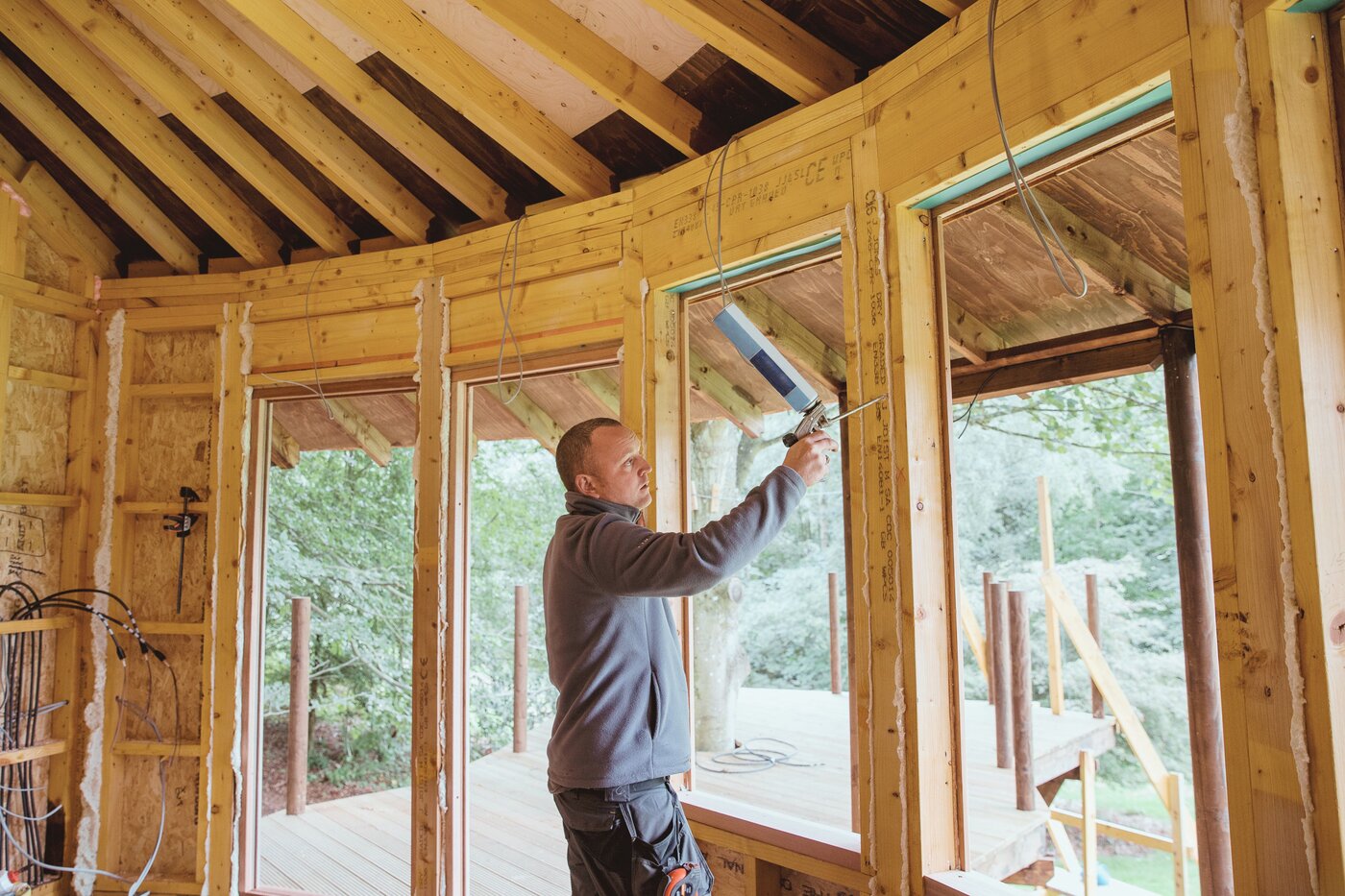Understanding Tax Implications for Treehouses

Treehouses often evoke fond childhood memories, but today’s elaborate structures can be more akin to tiny homes than simple backyard retreats. If you’re contemplating building a treehouse, you might be wondering about the tax implications. While it may seem unusual, treehouses can affect your tax liability. Here, we’ll delve into when you might owe taxes on a treehouse, and how to manage those responsibilities seamlessly with the Pie Tax App and expert tax assistants available on the Pie app.
The primary concern revolves around whether your treehouse is considered an improvement to your property, which can impact its valuation and potentially increase your property taxes. But don't fret, navigating these complexities doesn't have to be daunting. By understanding the potential tax ramifications, you can make an informed decision about your new treetop haven.
The tax implications of a treehouse hinge on various factors including its size, usage, and local council regulations. Knowing when you’re liable for taxes will help you avoid unexpected bills and ensure that your adventurous project doesn’t become a financial burden.
When Taxes Apply
The critical consideration is whether local property tax laws view your treehouse as an improvement that increases your property’s assessed value. If your treehouse is substantial and designed for habitation or regular use, it may be classified as a property improvement. This classification can trigger reassessment and potential hikes in property taxes. Always confirm with your local tax assessor.
However, simpler structures like modest playhouses are less likely to incur extra taxes. Generally, if the treehouse can be compared to a garden shed or similar non-inhabitable space, tax implications are minimal. The scope of construction and its intended use play a significant role in determining taxability.


Council Regulations
Council regulations are another layer of complexity. Some local councils have specific guidelines for treehouses, considering factors like height, safety, and potential impact on neighbours. Failure to adhere to these guidelines could result in fines or forced removal of the structure, indirectly leading to additional costs. Always check with your local council before construction to ensure compliance.
Moreover, obtaining the necessary permits might incur costs, but it ensures that your investment is legally sound and won't attract unintended penalties. Regulations vary across regions, so thorough research is crucial.

Recent statistics suggest that property improvements can increase your property tax by an average of 5-15%. This figure underscores the importance of considering potential tax hikes when planning your treehouse. Additionally, fines for non-compliance with council regulations can be steep. In some areas, penalties can be as high as £2,000. Ensuring your treehouse complies with local laws can save you from substantial fines.Property Taxes

The cost of a building permit for treehouses can range from £100-£500, depending on your local council's regulations. This fee is a worthwhile investment to ensure regulatory compliance and avoid future complications. Non-compliance fines are another concern. Recent data shows that fines for unauthorised constructions can reach up to £3,000. Ensuring all permits and guidelines are followed can prevent large penalties.Permit Costs

Managing Property Taxes
When dealing with potential increases in property taxes due to your treehouse, it’s beneficial to get ahead of the situation. Engaging with your local tax assessor can provide clarity and help you anticipate changes to your property’s assessed value. If an increase is warranted, you’ll have an opportunity to budget accordingly.
Additionally, using the Pie Tax App can streamline this process. The app offers comprehensive tools to track and manage tax liabilities, ensuring you stay informed and compliant without unnecessary stress. The expert tax assistants available on the Pie app can provide personal advice tailored to your situation, making tax season less daunting.
Permits and Approvals
Acquiring the necessary permits for your treehouse isn’t just about dodging hefty fines; it's also about ensuring the safety and longevity of your structure. Start by contacting your local council to understand what permits are required and the associated fees. This step helps in maintaining good relations with your neighbours by ensuring the treehouse is built to standard and doesn’t infringe on their properties.
Furthermore, having the right permits reassures any future potential buyers that your property enhancements are compliant and won't cause legal issues down the line. Documenting all permits and inspections will protect both you and future residents from unforeseen legal troubles.

Tips for Understanding Treehouse Tax Implications

Ensure you have the necessary building permits and permissions to avoid fines. Proper documentation can also affect your tax obligations and potential reliefs.Permits and Permissions

If you sell a property with a treehouse, be sure to consider the impact on capital gains tax. Improvements to the property, like treehouses, can affect the taxable amount.Capital Gains Tax

Earning rental income from a treehouse? Declare this income to HMRC. You may be able to offset expenses related to the treehouse against your rental income for tax purposes.Rental Income

Fun Facts on Treehouses
Did you know that the world's tallest treehouse stands at over 97 feet tall? This incredible structure is more than just a play area—it's a full-fledged, multi-storey home!
Handling Treehouse Tax Liabilities

Dealing with treehouse tax liabilities doesn’t have to be overwhelming. Start by understanding your obligations and using resources like the Pie Tax App to stay organised. Careful planning is key. If your treehouse is deemed a taxable property improvement, adjust your budget to accommodate potential tax hikes. This proactive approach ensures you're prepared for any financial impact.
Additionally, keeping detailed records of all permits, construction expenses, and communications with tax authorities can be incredibly beneficial. These documents will support any applications for permits or disputes regarding property assessments, providing a clear paper trail that could simplify the process.

If managing tax obligations feels daunting, consider seeking professional help. Tax Experts can provide tailored advice and help navigate complex tax laws. The expert tax assistants available on the Pie app offer personalised guidance, ensuring your tax affairs remain in order. Engaging with a tax professional can prevent costly mistakes, helping you save money and avoid legal issues. Their expertise can be invaluable, especially when dealing with unique structures like treehouses.Seek Professional Help

Keeping up-to-date with changes in tax Accurate record-keeping is essential for managing treehouse-related taxes. Maintain detailed documentation of all expenses and permits related to the treehouse. This habit not only aids in tax reporting but also ensures compliance with local regulations. Digital tools like the Pie Tax App simplify record-keeping, enabling you to track expenses and generate necessary reports easily. The app's features are designed to make tax management more efficient and less stressful.Accurate Record-Keeping
Summary
Understanding the tax implications of your treehouse is essential for avoiding unexpected costs and ensuring compliance with local regulations. From potential property tax increases to permit fees and compliance requirements, the financial impact can be significant. By engaging with local authorities, obtaining the necessary permits, and using digital tools like the Pie Tax App, you can manage these responsibilities efficiently.
The Pie Tax App offers comprehensive solutions for tracking and managing tax liabilities, while the expert tax assistants available on the Pie app provide personalised guidance. By staying informed and proactive, you can enjoy your treehouse without financial stress.











